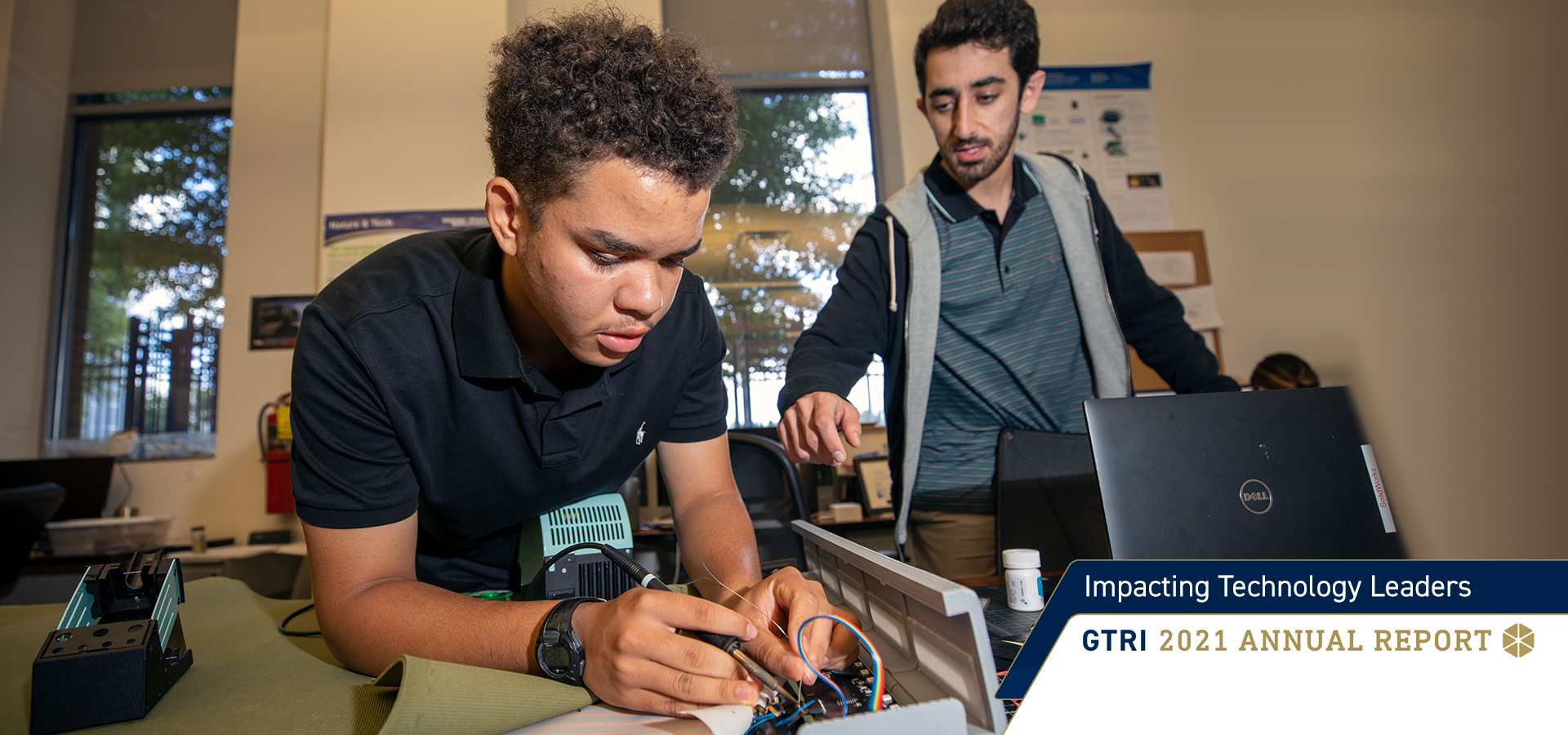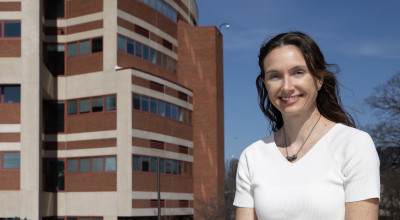
*Editor's Note: All photos for this story were taken in 2019, prior to updated mask guidance issued by Georgia Tech on August 2, 2021.
Covid-19 had nothing on STEM@GTRI's 2021 high school summer internship program.
The virtual, five-week program hosted 63 students from across Georgia that were selected from an application pool of 364, and 30 professionals at the Georgia Tech Research Institute (GTRI) who represented six of the eight GTRI labs and one support unit.
The students worked closely with GTRI professionals on several projects – from developing a facial recognition solution that detects medical emergencies in older adults to exploring ways to use electrodes to speed up wound healing. This is the second year GTRI hosted its high school summer internship virtually.
The ultimate goal of the program is to provide students with an immersive experience that inspires them to pursue a future career in the fields of science, technology, engineering, and math (STEM), said Erick Maxwell, a GTRI principal research engineer.
Maxwell noted the virtual requirement of the program was actually beneficial as it allowed GTRI mentors to get creative with how they structured their projects.
"We found workarounds to the whole experience," Maxwell added. For physical projects that required building and testing, the interns handled the design portion of those projects and GTRI staff carried out the on-site testing.
Therese Boston, a GTRI senior research associate and co-lead of the program, added that the organization was able to apply lessons learned from its first virtual internship program in 2020 to deliver an even more impactful experience to students this year.
As one of the program heads, Boston most enjoyed watching all of the students collaborate and become more confident in their problem-solving abilities.
"Seeing what students are able to accomplish in five weeks and knowing that they are able to build upon those skills either in school or in their college experience leading to future careers is rewarding," Boston said.
Some of the students were equally optimistic about their experience in the program.
"What I enjoyed the most about my internship was the support our mentors gave us throughout the entire internship," said Alejandro Avila, one of the student participants. "They always gave us help and guidance so we could be successful."
"I really enjoyed being a part of the STEM@GTRI internship," added Max Kornegay, another participant. "My favorite part of the internship was getting to work with other high school students from around the Atlanta area working on a facial recognition program for senior citizens that my grandparents could someday use."
The participating students represented the following Georgia school districts: Atlanta Public Schools, Cherokee, Cobb, Dekalb, Fayette, Forsyth, Fulton, Gwinnett, Marietta City Schools, as well as private and independent schools and homeschool.
Writer: Anna Akins
Photos: Sean McNeil
GTRI Communications
Georgia Tech Research Institute
Atlanta, Georgia USA
![]()
RETURN TO 2021 ANNUAL REPORT HOME
The Georgia Tech Research Institute (GTRI) is the nonprofit, applied research division of the Georgia Institute of Technology (Georgia Tech). Founded in 1934 as the Engineering Experiment Station, GTRI has grown to more than 2,800 employees supporting eight laboratories in over 20 locations around the country and performing more than $700 million of problem-solving research annually for government and industry. GTRI's renowned researchers combine science, engineering, economics, policy, and technical expertise to solve complex problems for the U.S. federal government, state, and industry.
Learn more at www.gtri.gatech.edu and follow us on LinkedIn, Twitter, Facebook, and Instagram.





